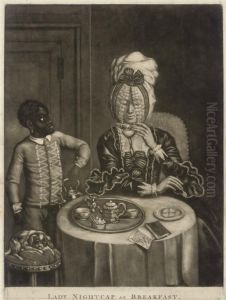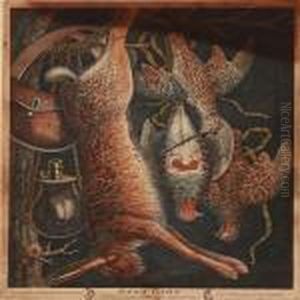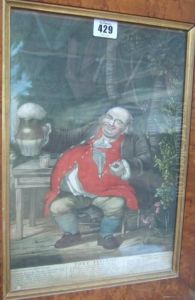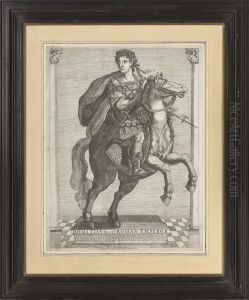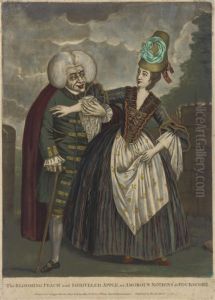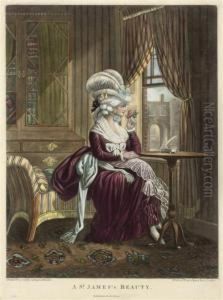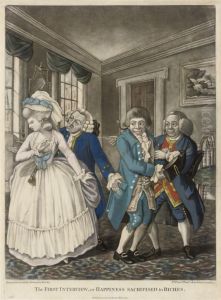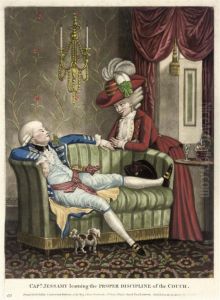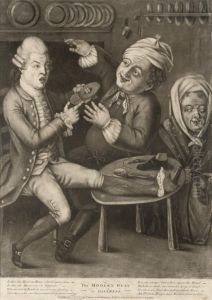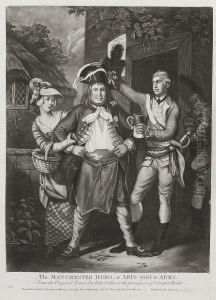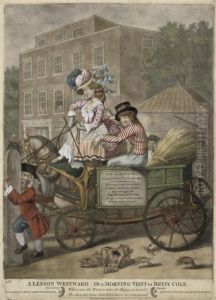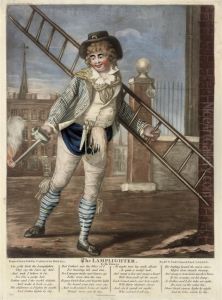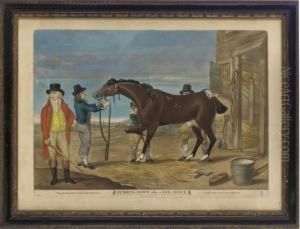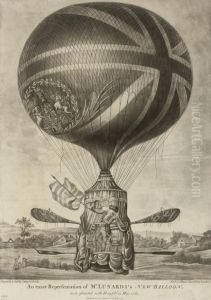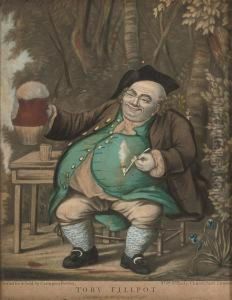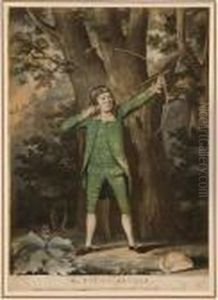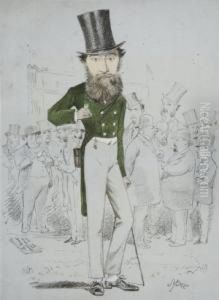Carington Bowles Paintings
Carington Bowles was a prominent British printmaker and publisher based in London, active during the 18th century. Born in 1724, Bowles became one of the most influential figures in the world of printmaking and map publishing of his time. He took over the family business from his father, John Bowles, and continued to expand its offerings, specializing in maps, atlases, and a wide range of print material including political cartoons, caricatures, and social satires.
Bowles's shop was located at the famous address of St. Paul's Churchyard in London, a hub for print and map sellers during the 18th century. His work was characterized by a keen eye for detail, a sharp wit, and an ability to capture the essence of British social life and political climate through his prints. He was adept at both producing and commissioning works, collaborating with artists and engravers to create images that were not only artistically commendable but also commercially successful.
Throughout his career, Carington Bowles managed to build a substantial catalogue of prints, contributing significantly to the visual documentation of 18th-century British culture. His works serve as valuable historical records, offering insights into the social customs, fashions, and political sentiments of his time. Bowles's contributions to the art of printmaking and publishing were not limited to his own creations; he also played a critical role in the distribution of works by other artists, thereby influencing the spread of visual culture in Britain and beyond.
After his death in 1793, the business was continued by his son, Henry Carington Bowles, ensuring the legacy of the Bowles family in the British printmaking industry. Today, Carington Bowles's prints are highly regarded by collectors and historians alike, appreciated not only for their artistic quality but also for their historical significance, providing a window into the world of 18th-century England.
